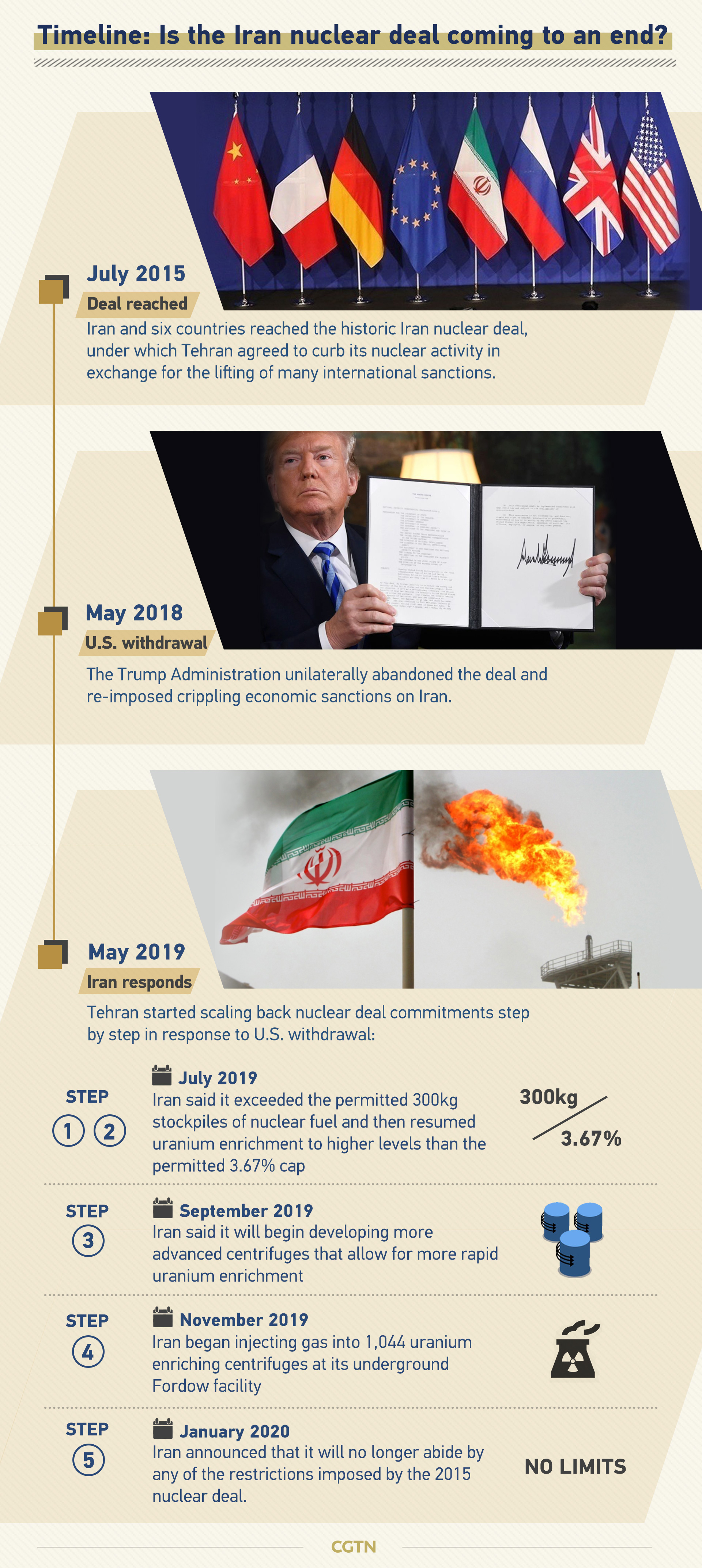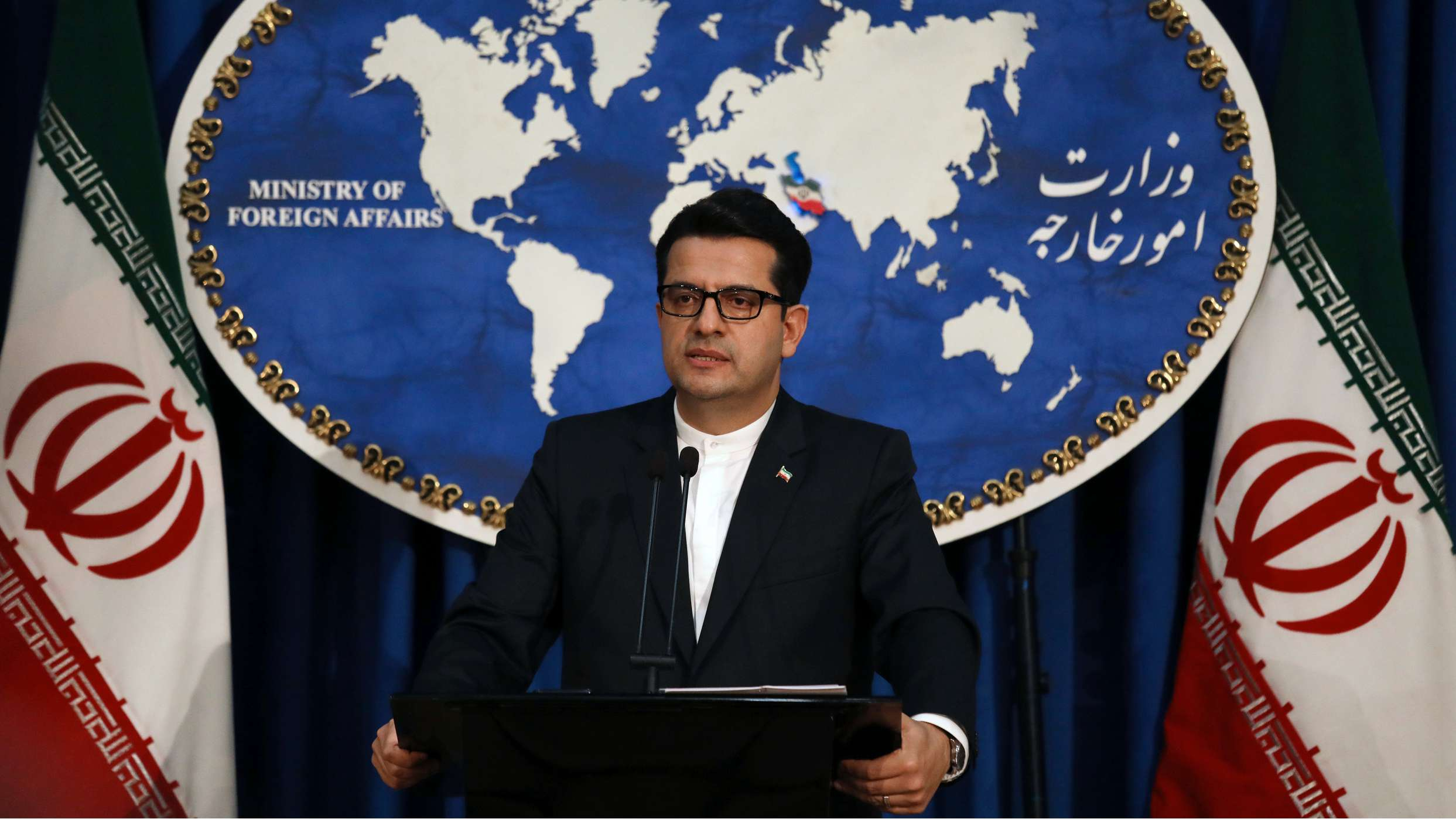Iranian Foreign Minister Mohammad Javad Zarif said on Monday that Tehran will pull out of the Non-Proliferation Treaty (NPT) if the nuclear case of Iran is sent to the UN Security Council.
"If the Europeans continue their improper behavior or send Iran's file to the Security Council, we will withdraw from the NPT," Iranian Foreign Minister Javad Zarif was quoted as saying by official IRNA news agency.
Britain, France and Germany declared Iran in violation of the 2015 pact last week and have launched a dispute mechanism that could eventually see the matter referred back to the Security Council and the reimposition of UN sanctions.
In November 2018, Iran informed Europeans that following the exit of the United States from the landmark 2015 nuclear deal, Iran triggered the dispute mechanism and concluded it, said Zarif. Therefore, "the Europeans' move is by no means legal."
NPT, which came into force in 1970, is a global pact aimed at preventing the spread of nuclear weapons and weapons technology, promoting cooperation in the peaceful use of nuclear energy, and achieving nuclear disarmament and general and complete disarmament.
The NPT has been the foundation of global nuclear arms control since the Cold War, including the 2015 nuclear deal, also known as the Joint Comprehensive Plan of Action (JCPOA), under which Iran agreed to put limits on its nuclear activities in exchange for the termination of western and UN sanctions.
However, U.S. President Donald Trump pulled Washington out of the deal in May 2018 and slapped old and new sanctions against Iran.

Since Washington withdrew from the deal, Trump began a policy of "maximum pressure," saying a broader deal should be negotiated on nuclear issues, Iran's missile program and Iranian activities in the Middle East.
Iran dismissed the U.S. calls and, since May 2019, started to reduce commitments to the accord and recently announced that it had given up all the "practical measures" pertaining to the JCPOA.
Presently, Iran is only bound to the IAEA's supervisory measures enshrined by the NPT which Tehran accepted to undertake in 2015.
On Monday, Zarif noted that Iran will re-embrace its nuclear commitments if the Europeans honor their own obligations and help Iran reap economic interests that the nuclear deal safeguarded.
"Despite the ill will that we see from some European countries the door of negotiations with them has not been closed and the ball is in the court of these countries," Iranian Foreign Ministry spokesman Abbas Mousavi said.
But he also told a news conference: "I don't think Iran is ready to negotiate under the conditions they have in mind."
Tehran has repeatedly held talks with European officials to find ways to keep the nuclear agreement alive, but has blamed the Europeans for failing to guarantee economic benefits that Iran was meant to receive in return for curbing nuclear work.
"The European powers' claims about Iran violating the deal are unfounded," Mousavi said. "Whether Iran will further decrease its nuclear commitments will depend on other parties and whether Iran's interests are secured under the deal."

In this May 28, 2019 file photo, Iran's Foreign Ministry spokesman Abbas Mousavi speaks at a media conference in Tehran, Iran. /AP Photo
In this May 28, 2019 file photo, Iran's Foreign Ministry spokesman Abbas Mousavi speaks at a media conference in Tehran, Iran. /AP Photo
Britain has said a "Trump deal" could replace the 2015 deal, and France has called for broad talks to end the crisis that erupted into U.S.-Iranian military action this month.
Iran says it cannot negotiate with Trump who broke promises by repudiating the deal reached under his predecessor Barack Obama. Mousavi repeated Iran's rejection of a "Trump deal."
"The fact that a person's name is put on an agreement shows they're not familiar with the conditions. An agreement with a person doesn't mean anything," he said.
(With input from Reuters, Xinhua)
(Cover: Iran's Foreign Minister Mohammad Javad Zarif sits for an interview with Reuters in New York, U.S. April 24, 2019. /Reuters Photo)